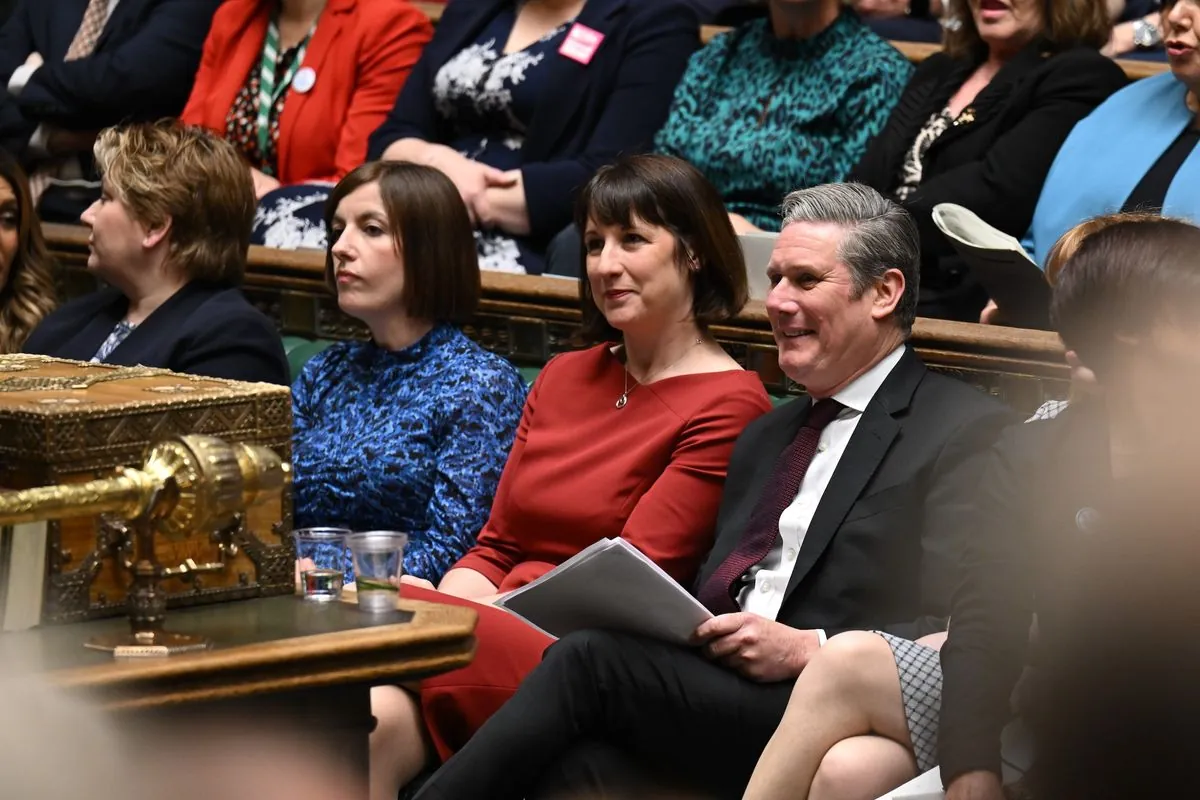Starmer's First 100 Days: A Stark Contrast to FDR's New Deal Legacy
As Keir Starmer's first 100 days as UK Prime Minister approach, his leadership stands in sharp contrast to Franklin D. Roosevelt's transformative New Deal era, raising concerns about Labour's economic vision and business engagement.

The economic landscape of 1933 America and 2024 Britain presents a stark contrast, highlighting the divergent approaches of two leaders facing national challenges. While Franklin D. Roosevelt inherited a nation in dire straits, Keir Starmer's UK faces less severe economic hurdles, yet his first 100 days as Prime Minister have been marked by a somber tone and lack of visionary leadership.
In 1933, the United States was grappling with a 25% unemployment rate and widespread poverty. Roosevelt's response was swift and decisive. His New Deal program, initiated during his first 100 days in office, saw the passage of 15 major bills aimed at economic recovery and reform. This period of intense legislative activity laid the groundwork for significant changes in American society and economy.

Some key initiatives of the New Deal included:
- The creation of public works programs like the Works Progress Administration (WPA)
- The establishment of the Social Security system
- The passage of the National Labor Relations Act
- The implementation of banking reforms through the Glass-Steagall Act
- The formation of agencies like the Tennessee Valley Authority (TVA)
These measures not only provided immediate relief but also reshaped the American economic landscape for decades to come. Roosevelt's optimistic messaging, encapsulated in his famous quote, "The only thing we have to fear is fear itself," helped restore public confidence.
In contrast, Starmer's first 100 days have been characterized by a gloomy outlook and a focus on past criticisms rather than future plans. His government's rhetoric has emphasized economic challenges, with statements about inheriting the worst economic situation since World War II and warnings of further difficulties ahead.
"We are facing a £22 billion 'black hole' in the public finances."
This pessimistic tone has been accompanied by policy decisions that have raised concerns among businesses and the public alike. The scrapping of infrastructure projects and the reduction of winter fuel allowances for pensioners have been particularly controversial.
Starmer's approach to business engagement has also been criticized. Despite promises of an "enduring partnership with business," there has been little concrete action to support wealth creation or encourage private sector growth. The lack of established communication channels between the government and businesses has left many industry leaders feeling uncertain about the future.
The Labour government's focus on workers' rights, while addressing important issues like the practice of fire and rehire, has raised concerns about increased costs for businesses. This, coupled with discussions about potential tax increases, has created an atmosphere of apprehension in the business community.
However, it's worth noting that the economic situation is not as dire as the government's messaging suggests. Recent bond auctions have shown strong investor confidence in UK debt, and the pound has reached a 29-month high against the dollar. These indicators suggest that there may be more room for economic maneuver than the government has acknowledged.
As Starmer approaches his 100th day in office on October 12, 2024, the contrast with Roosevelt's transformative first 100 days is stark. While the challenges facing the UK are different from those of 1930s America, the lack of a clear, positive vision for the future and the absence of bold economic initiatives have left many questioning Starmer's leadership.
The coming weeks will be crucial for Starmer to redefine his government's approach and present a more compelling plan for Britain's future. Without a shift in tone and policy, he risks starting his political career as Prime Minister on a disappointing note, falling short of the transformative leadership exemplified by Roosevelt nearly a century ago.


































